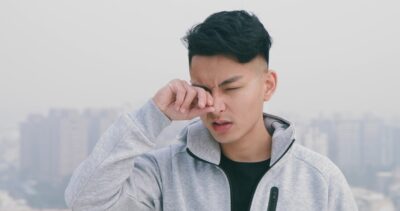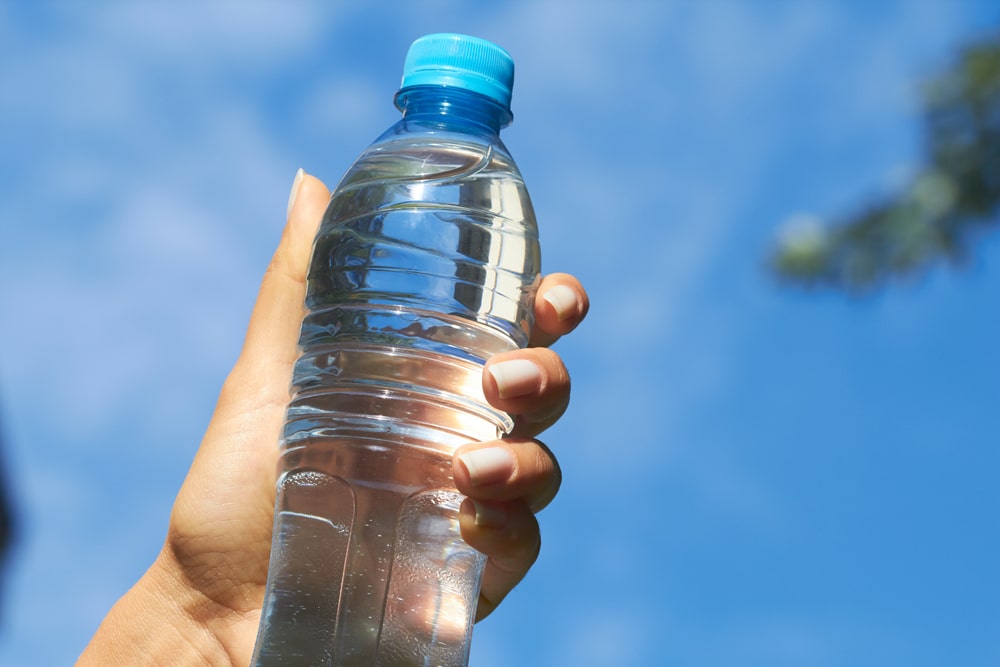It’s important to stay hydrated for many reasons, including for your eye health. People who don’t drink enough water are more likely to suffer from dry eye than others. While there are many different causes of dry eye, dry eye is a side effect of dehydration.
Here is what you need to know about how staying hydrated helps your eyes.

What Can Happen To Your Eyes If You Don’t Stay Hydrated?
If you don’t have enough tears, your eye may become itchy, scratchy, or have a burning sensation. You may also experience blurred vision, trouble focusing, and headaches. Your eyes may appear red and you may feel as though there is something in your eye.
You may also experience dry eye. Dry eye can lead to problems like eye inflammation and corneal abrasions. It can increase your risk of developing cataracts. You may even experience temporary vision loss that is reversible with rehydrating your body.
Your Body Needs Water To Make Tears
Water helps your tear production. Tears help to repel bacteria, protect the cornea, and keep your eye moist and healthy.
You actually have three different types of tears.
- Emotional tears are the ones most people think of. These well up when you get emotional. While most people cry when they’re sad, people can also cry when they’re happy, angry, or experiencing other emotions.
- Reflex tears are the ones that happen when you get something in your eye. Your eyes start watering in an effort to flush the foreign object out.
- Basal tears are constant. They’re the ones that protect your cornea and help to keep your eye healthy. If you have dry eye, you may experience tightness or burning in your eyes, as you don’t have enough basal tears to keep them comfortable.
People’s eyes may water when they’re dry, which can cause people to think that they don’t need hydration. However, this is your body trying to rehydrate, similar to how your body sweats when you get hot in an effort to cool you down.
What Causes Dehydration?

Some common causes of dehydration include:
- Simply not drinking enough water
- Alcohol
- Excessive salt intake
- Diabetes
- Caffeine
- Stress
- Hot weather
- Excessive screen use (due to how looking at screen causes you to blink less often)
- Prescription medications
A Note About Hydration Needs
In general, it’s recommended to drink about 8 glasses of water a day. However, it’s important to remember that hydration is a very individual thing. Your activity levels, height and weight, diet, the climate where you live, and more can affect how much water you need. For instance, what keeps one person hydrated may not be enough or may be too much for someone else.
As such, it’s important to pay attention to your thirst cues. If you have a diet rich in foods like watermelon, soups, yogurt, and the like, you may not need as much water as someone who eats things with a lower water content. Rather than fretting about how many ounces you’re drinking, pay attention to what your body is telling you.
How To Tell If You Are Dehydrated?
Some signs of dehydration include:
- Darker urine (pale or clear indicates being hydrated)
- Feeling thirsty
- Dry eyes, lips, or mouth
- Not needing to pee much
- Tiredness
- Dizziness
Dry eye is unlikely to be one of the initial signs that you’re dehydrated. If you start to notice that your eyes are dry, get some water. While dry eye may start off mild, it can worsen.
Keeping water with you through the day makes it easier to remember to drink water.

What If My Eyes Are Still Dry When I’m Hydrated?
If you’re vigilant about staying hydrated but you still suffer from dry eye, your dry eye is likely the result of something else. Talk to your eye doctor about the issue. They’ll be able to help you determine what’s going on. You may benefit from eye drops.
Corrective Lenses Help To Prevent Dry Eye
It’s important to give your eyes a break from screens and contacts to help them stay hydrated. Wolcott Optical can help you find blue-light glasses to protect your eyes from dry eyes resulting from staring at screens all day, as well as a backup pair of glasses you can use in order to avoid wearing your contact lenses for too long.
Contact us today to learn more about the eyeglasses and contact lenses we provide. While we are not eye doctors, we care about protecting your vision with quality corrective lenses.
